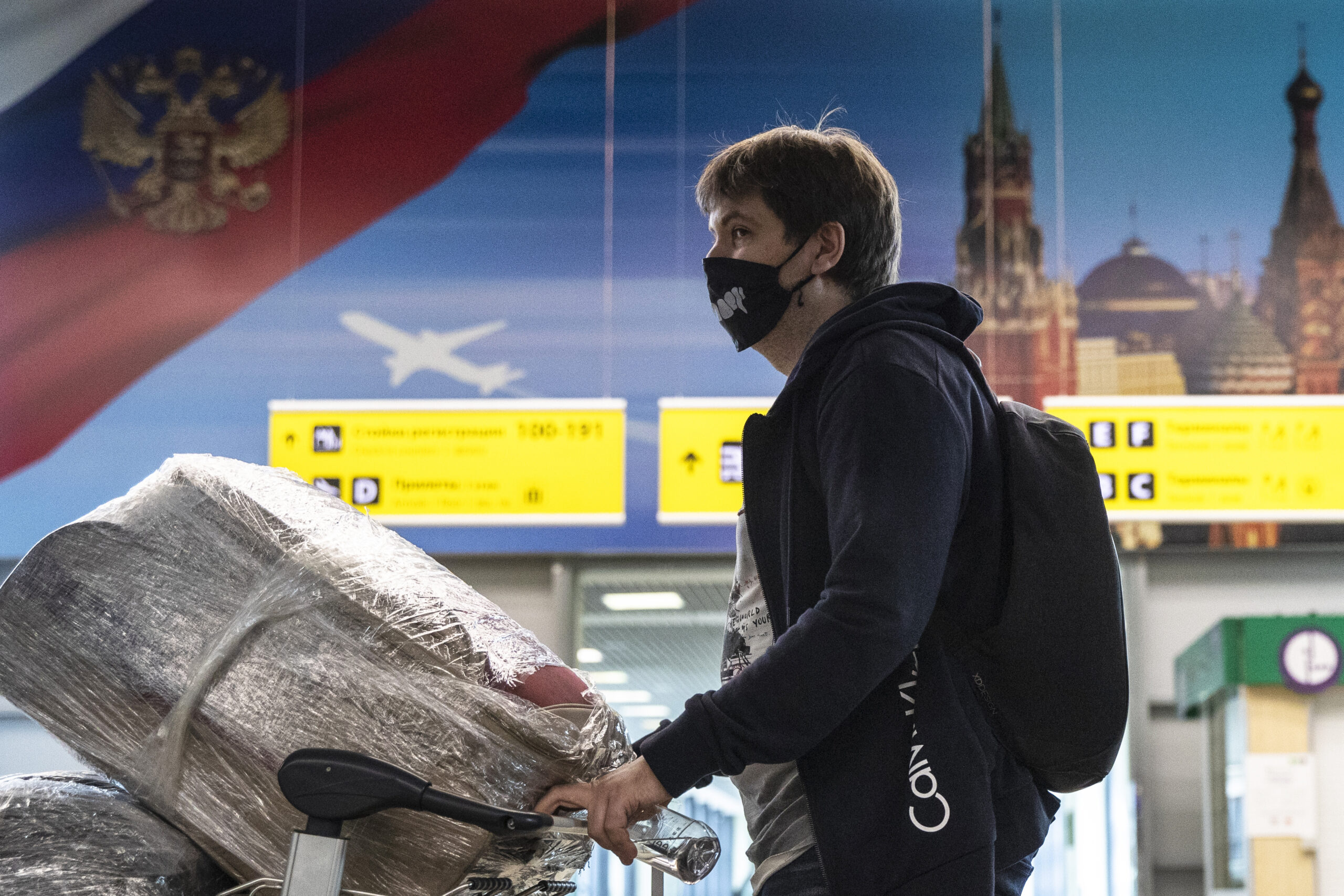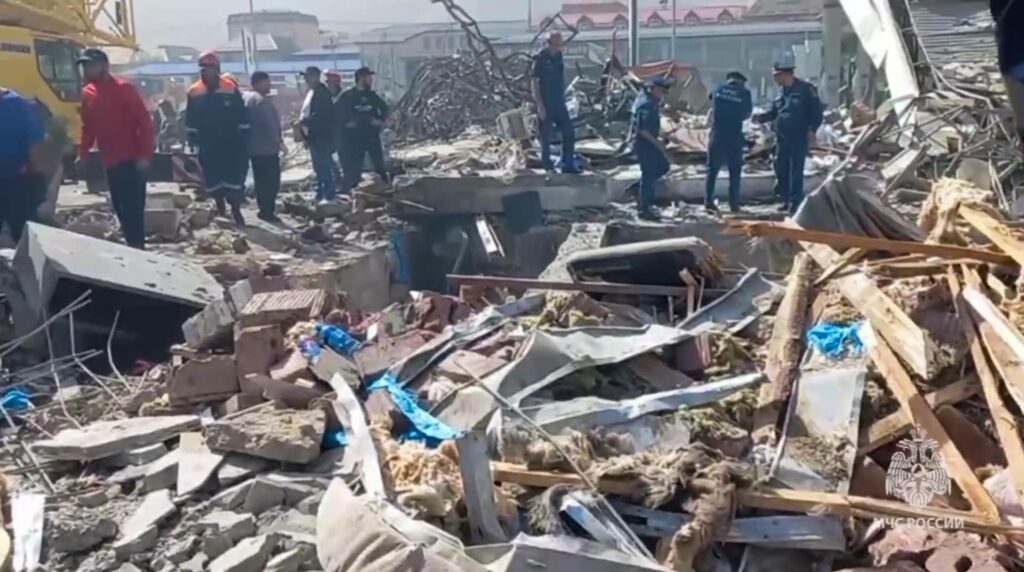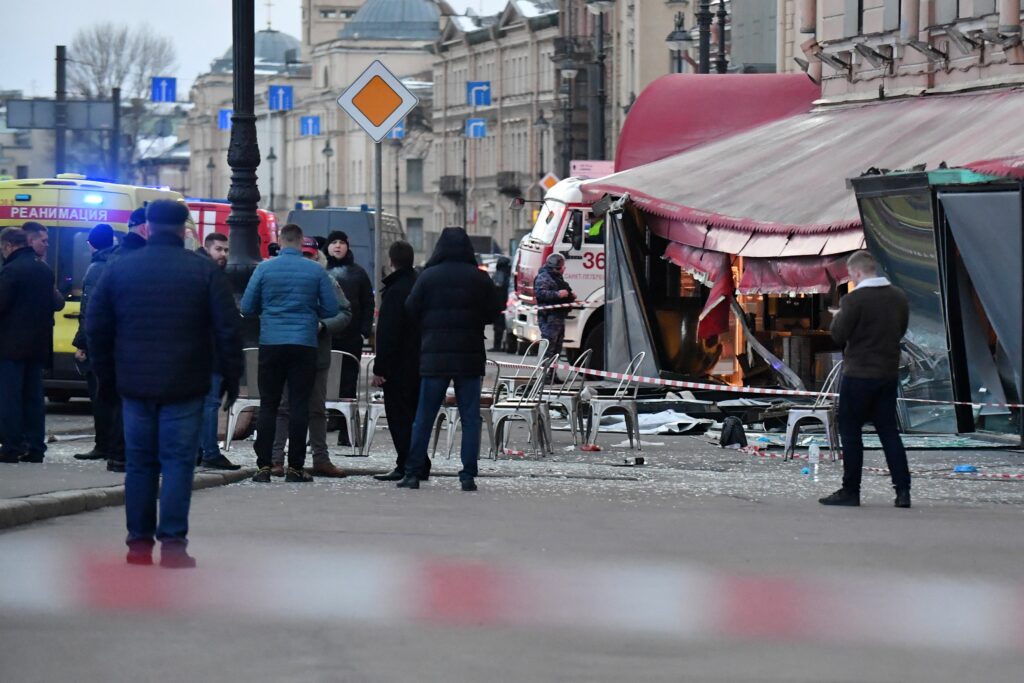Over 250 days have passed since the start of a full-scale war between Russia and Ukraine. There is no overstating how much this has already changed life in Russia. This article will deal with yet another previously unthinkable knock on effect: the curtailed right to leave the country.
This right itself appeared relatively recently: the Law «On the procedure for leaving the Union of Soviet Socialist Republics and entering the Union of Soviet Socialist Republics of citizens of the USSR» was signed by President Gorbachev on May 20, 1991. By this time, the USSR had only a few months to live. The country was changing rapidly; active citizens understood well that it was possible to change one’s own life only by creating a new society — few could go abroad and get a job there (with the exception, of course, of Jewish repatriates or ethnic Germans, for whom the resettlement program was in effect). The norms of the Soviet law, virtually unchanged, migrated to Russian law: to the 27th article of the Constitution of the Russian Federation and the Law on Entry and Exit in the original edition of 1996.
That late Soviet policy change has led to a completely new reality where Russians have become one of the most globalized peoples. From 1992 to 2021, at least 8 million people left the country, of which about 5 million left in the 21st century. In many parts of the planet, a new «Russian world» has formed from professionals who easily integrated into their new homelands and accepted their orders and values. The outflow slowed only at the end of the 2000s, with the apparent transformation of Russia into a «normal country.»
Now that time is over. Russia has returned to the status of a pariah state and its citizens are faced with a lot of restrictions across the world: the number of visas issued to Russians is declining in all countries (in the case of the United States, for example, it fell from 204 thousand in 2017 to 15.7 thousand in 2021), and some of those already issued have ceased to be a guarantee for entry (as is the case with the Baltic countries or the Czech Republic). However, the restrictive measures on the part of the West are incomparable in scale and intensity with those taken by the Russian government itself.
A tougher line against emigration began in Russia already in 2005; back then, a rule was adopted to restrict the right to leave for those who had unsettled financial obligations to the tax authorities, banks or other companies or citizens. Ten years after the adoption of this norm, the average number of «not allowed to travel abroad» reached 2 million people, or 7−8% of those with a foreign passport. Since 2013, overt (and more often unspoken) bans on travel abroad for employees of law enforcement agencies and special services began to appear, although the vast majority of them did not have access to information constituting state secrets and did not pose any threat to the country’s security. As a result, by the beginning of 2020, when the exit from the country was additionally «soldered» by anti-COVID measures, the number of people deprived of their rights exceeded 7 million people (to be fair, it must be said that most of the restrictions on civil servants concerned «unfriendly» countries; they could travel to Kazakhstan or Armenia, but the explosive growth of tourism in these countries did not happen because of this.)
The war in Ukraine has dramatically changed the emigration patterns of Russians. At its initial stage, more than 200 thousand people left the country in a panic — but even this cannot be compared with the September-October exodus, the scale of which, most likely, approaches 1 million. In the new conditions, the Russian authorities, thus far have not introduced a complete travel ban. Yet it would seem that the introduction of various levels of «preparedness measures» could suggest this. Instead, restrictions have been imposed on those who were directly subject to mobilization, and, according to various sources, have affected about 1 million people. Otherwise, citizens can leave the country quite freely, including using various kinds of «corridors» (for example, through Belarus).
However, more radical measures are not far off. The hunt for men that began all over the country, which for the most part does not involve appeals of its victims to various legal norms and is fraught with huge risks for millions of people, has not ended. The authorities say the active phase of mobilization is completed, though some insiders reckon the process will resume on a greater scale and with better preparation after New Year. If the Kremlin’s leaders really have plans to mobilize 1 million, or even 1.2 million people, then it is impossible to do this with open borders: the next wave of flight will turn out to be such that the economy, which is poorly coping with the current one, will simply go into freefall.
Under such circumstances, there are two possibilities. On the one hand, one can simply prohibit free exit from the country and introduce exit visas, issued after consideration of the corresponding application. In the late Soviet period, such a procedure existed and proved effective. To ideologically ustify such an option now will not be too difficult. Formally, it will be possible to present a wide list of grounds for leaving, but in each specific case, specific difficulties may arise. Naturally, all this will be presented as a temporary measure. An obvious advantage of such a decision is an almost 100% guarantee that any «irresponsible elements» who have shown themselves to be traitors to the Putin cause will no longer risk returning to Russia. The downside is the fact that citizens will perceive the innovation as a complete return to the days of communism and many millions will be drawn to leave — and without the intention of returning. Considering the Russian realities, there is no doubt that the employees of the migration services will provide help for their compatriots and will release almost everyone from the country if there happen to be financial rewards. The blow to the economy will be far worse than the already dire effect of the autumn migration of this year.
On the other hand, Kremlin can offer the population a «new edition» of Putin’s «social contract»: the authorities determine the categories of workers who are vital to the economy (while current trends persist, there is a shortage of supply managers, bank employees, programmers and representatives of many other professions will become critical in the near future) and officially provides them with an excuse from mobilization. In this case, the corresponding mark is entered in the passport, or the passports are just taken away, of course temporarily. This scheme means precisely an agreement between the government and citizens: if you want to have a guarantee against conscription, give up freedom of movement and, in fact, serve your homeland on an alternative front. It looks more understandable, but two problems remain: firstly, involvement in relations with the authorities regarding the execution of relevant documents will be perceived by people as an unacceptable risk, since the result will not be obviously guaranteed (there are many cases when a person went to the military registration and enlistment office for deferment but ended up at the front). Secondly, it is enough to count how many promises the Kremlin has not fulfilled at over the past year. So there may well be unwillingness for any Faustian bargaining here; all the more so, no one knows how the situation at the front will change in the future and whether the country will need almost all of its male population.
As might be expected, there were already rumors in Russia about the closure of the borders (they were especially active in late September immediately after the announcement of mobilization, but the suspicions were not confirmed then). Now the fears have weakened (the exit is formally closed only for those to whom the military registration and enlistment offices handed or sent mobilization notes), but there are no fewer reasons for them. In the event that a second wave of mobilization begins in the country in a few months, it can be assumed that the Kremlin will make the worst decision: as a result, the authorities will close the borders for all men of working age, transferring the functions of issuing exit permits to specially created structures staffed by intelligence officers. A similar system is now operating in Ukraine, where, under martial law, the exit of men is extremely difficult (at the same time, this norm was introduced not even by a presidential decree, but by acts of a number of departments, which now raises many questions and criticism). In Russia, where there are no problems either with the next presidential decree or with the inconsistency of certain decisions with the provisions of the Constitution, the introduction of such a regime will not be difficult — and it should be assumed that it will be announced before the start of a new stage of hunting for men.
Will such a decision threaten political stability in the country? Probably not. The current situation differs from the late Soviet one in almost every way. The population views the West rather as an enemy, not a friend and a role model. For many years, the authorities have been «tightening the screws», rather than weakening control over society. Emigrants are considered traitors, not masters of minds. And, most importantly, in recent years, too many people dissatisfied with the authorities have left the country for new masses ready to fight the regime to appear quickly enough. A kind of «window of opportunity» for popular indignation took place just between February 24 and the present time, when Russia, previously open and technologically advanced, abruptly took a course towards primitivization and autarky. People responded to the madness of the Kremlin not collectively, but individually: they tried to save not the country, but themselves, they did not take it to the streets, but went on the run. It is in this that the author sees confirmation of a long-standing observation: in Russia there is a population, but there is no society. This population can be closed in a cage without serious fear that it will be destroyed. And history shows that the Russian government rarely refuses to use violence against its subjects that they do not oppose.










